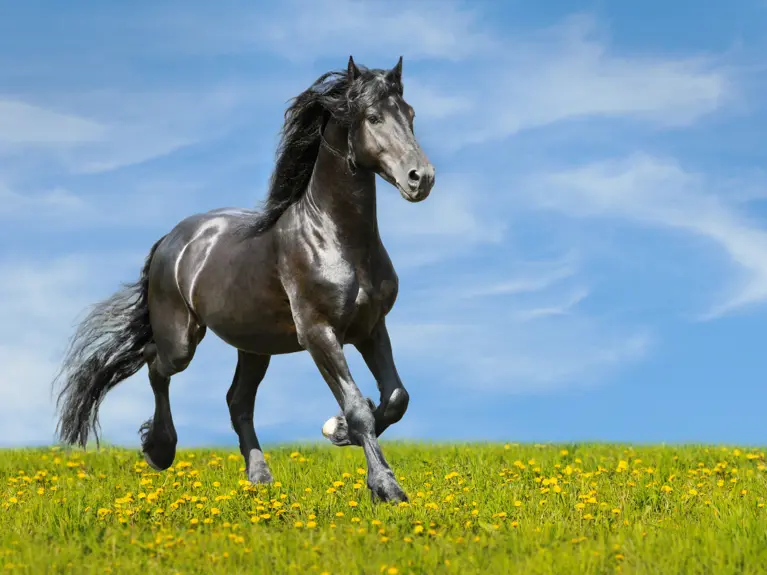
The importance of nutrition for sensitive skin
When your horse has a low immune resistance, this can affect the condition of the skin. The skin then becomes less able to protect itself against external influences. Often this can be seen as eczema, itching, or rashes.
The skin is the largest organ (by surface area) of a horse. It protects the horse against outside influences. With the right intake of essential nutrients, the skin remains in top condition.
What to look for in nutrition?
First and foremost, it is important to provide your horse with high-quality, fiber-rich forage. This already supplies many essential nutrients. But a horse with sensitive skin needs just a little extra. That’s why you should choose a concentrate that contains plenty of fiber. This supports digestion, which in turn benefits immunity. In addition, it is important that the concentrate contains other supportive nutrients:
-
Biotin
Biotin is part of the vitamin B complex and supports the horse’s metabolism. Because biotin is sulfur-containing, it plays an important role in skin and coat health. -
Prebiotics
Prebiotics support the good gut bacteria in the intestinal flora and combat harmful bacteria. This improves digestion and nutrient absorption. -
Probiotics
Probiotics contain live microorganisms that enhance intestinal flora. -
Beta-glucans
Recent research shows that beta-glucans can help prevent fungal infections. Beta-glucans are recognized by the immune system as a natural trigger, helping to activate it.
Feed for horses with sensitive skin
For horses with sensitive skin, you can feed Voermeesters Huid Vitaal. These cubes contains a high level of functional fibers, additional biotin, and essential vitamins, minerals, and fatty acids to support the skin. These 10 mm cubes also promotes gut health, which can support the immune system and help reduce skin problems. Read more about Huid Vitaal

